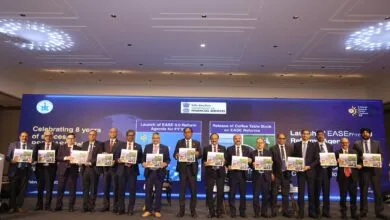States are suffering from Financial Crisis due to Free DBT Schemes: SBI

The State Bank of India (SBI) has raised concerns about the financial burden posed by women-centric Direct Benefit Transfer (DBT) schemes in various states. These schemes, often introduced around election periods, aim to provide direct cash benefits to women but could strain state budgets significantly.
According to an SBI report, the total cost of these welfare programs across eight states has exceeded ₹1.5 lakh crore, consuming 3–11% of these states’ revenue receipts. The report described this trend as a “tsunami” of welfare spending, with some schemes appearing to be more politically motivated than economically sustainable.
High Costs in Focus
The report highlighted specific examples of these schemes:
- Karnataka’s Gruha Lakshmi Scheme: Provides ₹2,000 per month to female heads of households, costing ₹28,608 crore annually—11% of the state’s revenue receipts.
- West Bengal’s Lakshmir Bhandar Scheme: Offers a one-time ₹1,000 grant to women from economically weaker sections, costing ₹14,400 crore annually—6% of the state’s revenue receipts.
- Delhi’s Mukhyamantri Mahila Samman Yojana: Allocates ₹1,000 per month to adult women, requiring ₹2,000 crore annually—3% of the state’s revenue receipts.
While some states, like Odisha, can better manage these expenditures due to higher non-tax revenues and lower borrowing requirements, others are at risk of significant fiscal imbalances.
Ripple Effects on Central Government
The report also warned that the central government might face pressure to implement similar women-focused schemes, further increasing fiscal challenges. SBI suggested considering a universal income transfer scheme, where both the central and state governments share costs, as a more sustainable alternative.
Balancing Welfare and Fiscal Health
While these initiatives aim to empower women and garner electoral support, the SBI report emphasized the need for states to carefully evaluate their fiscal health and borrowing capacity. It called for a comprehensive review of welfare spending to ensure long-term financial stability without compromising economic growth.
SBI’s findings highlight the importance of striking a balance between social welfare and financial sustainability, urging states to adopt prudent fiscal practices while addressing the needs of their citizens.
